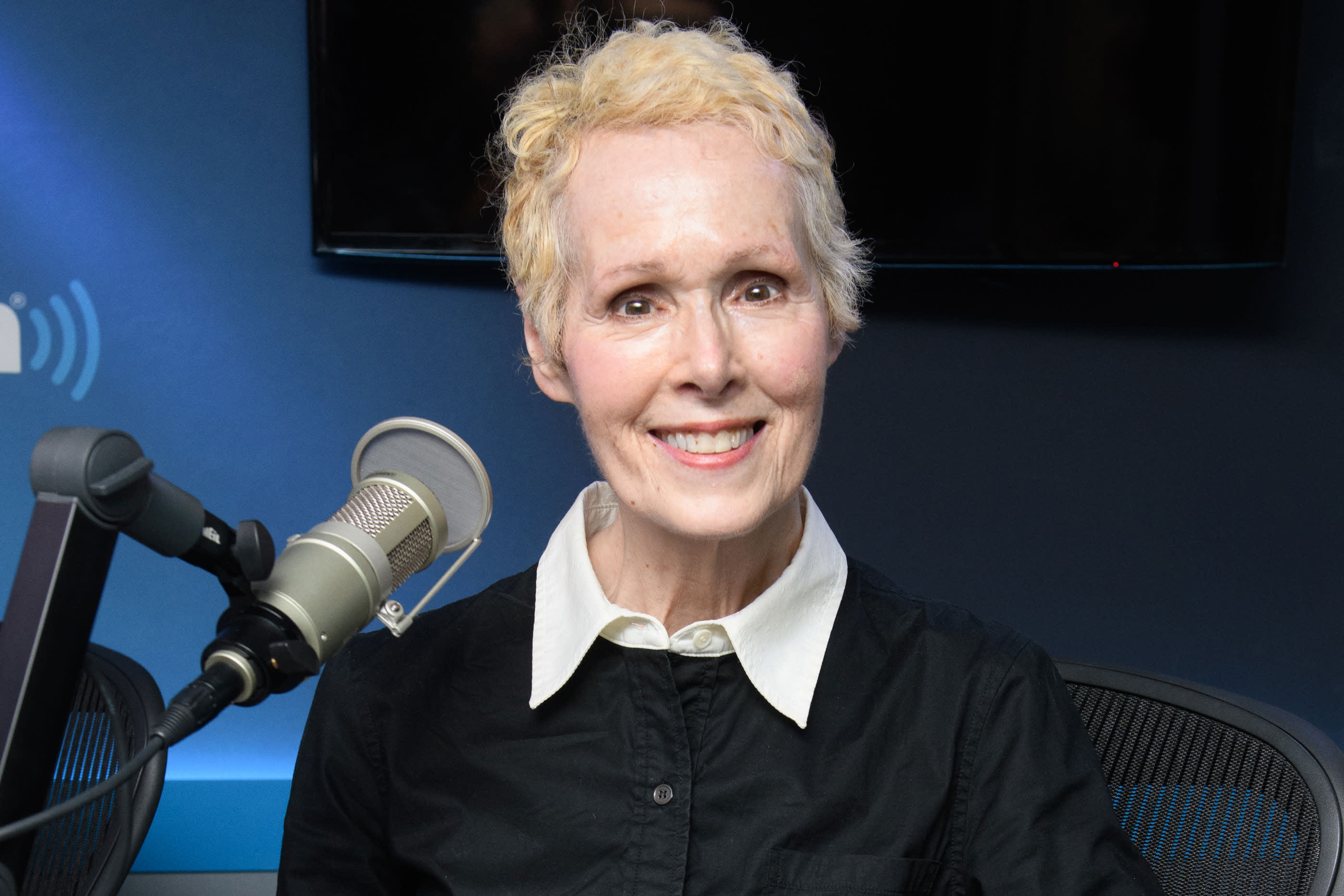Trump loses bid to countersue rape accuser E. Jean Carroll, judge rules in scathing decision
E. Jean Carroll has said Donald Trump raped her in the mid-1990s in a dressing room in a New York department store. He denies her claim.

E. Jean Carroll visits 'Tell Me Everything' with John Fugelsang in the SiriusXM Studios on July 11, 2019 in New York.
Noam Galai | Getty Images
Former President Donald Trump on Friday lost his effort to be allowed to countersue and seek financial damages from the writer E. Jean Carroll, who accuses him of raping her years ago in a New York City department store.
In his scathing decision rejecting Trump's effort, Manhattan federal court Judge Lewis Kaplan said there is good reason to believe that the request is a delaying tactic by the former president to further stall Carroll's defamation lawsuit against him.
Kaplan wrote that the request smacks of "bad faith" by Trump, who waited 14 months to seek permission to answer Carroll's claims with a countersuit alleging harassment and arguing that she is making "baseless" accusations.
The judge said that delaying the case further would prejudice Carroll's right to have her claims tried in court.
He also said that even if Trump were allowed to countersue, proving his claims in court would be "futile."
"The record convinces this Court that the defendant's litigation tactics, whatever their intent, have delayed the case to an extent that readily could have been far less," Kaplan wrote.
The decision comes as the U.S. Circuit Court of Appeals for the 2nd Circuit is considering an appeal by Trump and the U.S. Justice Department of an earlier ruling by Kaplan, who barred the U.S. government from replacing Trump as the defendant in Carroll's lawsuit.
If the Justice Department wins that argument, which is based on the fact that Trump was president and not a private citizen when he made the allegedly defamatory claims about Carroll, it would effectively end her case.
That is because the U.S. government could then invoke its protection from lawsuits on the ground of sovereign immunity.
Carroll sued Trump for defamation in November 2019 after he claimed she was lying, and motivated by money and a political agenda, when she accused him of sexual assault. She wrote in a New York magazine article in June that year that Trump had raped her in a Bergdorf Goodman dressing room after a chance encounter in that store in the mid-1990s.
Carroll's lawyer Roberta Kaplan, in an emailed statement about Friday's decision, said, "As the Court said in its opinion today: a 'characterization of [Donald Trump's] previous and threatened future actions as dilatory, in bad faith or unduly prejudicial would be a bootless exercise. They are, in varying degrees, all three.'"
''Judge Kaplan further noted that this case 'could have been tried and decided — one way or the other — long ago.' My client E. Jean Carroll and I could not agree more," said the attorney Kaplan, who is not related to the judge.
Trump's lawyer Alina Habba said in an email, "While we are disappointed with the Court's decision today, we eagerly look forward to litigating this action and proving at trial that the plaintiff's claims have absolutely no basis in law or in fact."
Carroll's case was originally filed in Manhattan Supreme Court, a trial-level court in the New York state judicial system.
The Justice Department, while Trump was still in office, waited for 10 months before seeking to have the case transferred to U.S. District Court in Manhattan, a federal court, and asking to substitute the government for Trump as a defendant.
The move came a month after a state judge rejected Trump's claim that he is immune from a private lawsuit, setting the stage for him to be required to submit a DNA sample that could be compared to a stain on Carroll's dress, which she had saved from that day, and be compelled to answer questions under oath.
Judge Kaplan promptly barred the Justice Department from having Trump removed as the defendant.
"The President of the United States is not an employee of the Government within the meaning of the relevant statutes," Kaplan wrote in October 2020.
"Even if he were such an employee, President Trump's allegedly defamatory statements concerning Ms. Carroll would not have been within the scope of his employment," Kaplan wrote that month.
The Biden administration, to the surprise of some legal observers, persisted in the appeal of Kaplan's ruling that first was filed by the Justice Department under the Trump administration.

 BigThink
BigThink 































